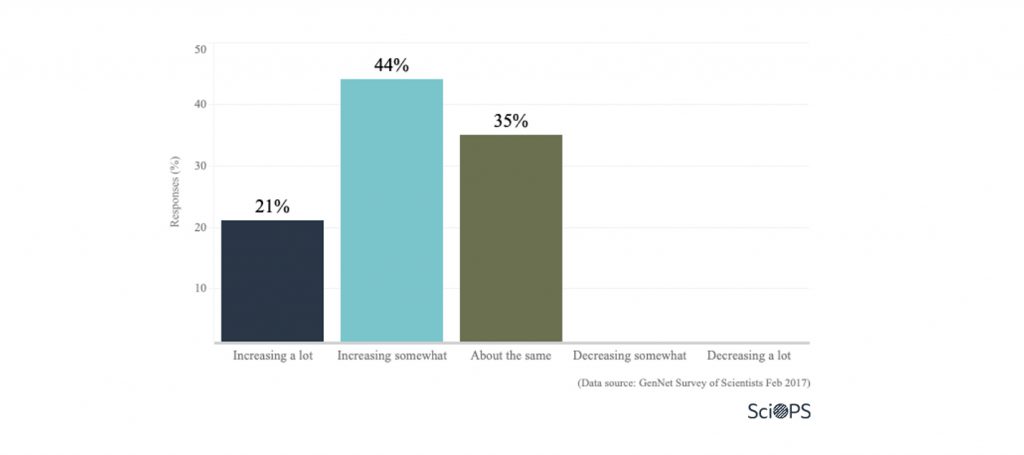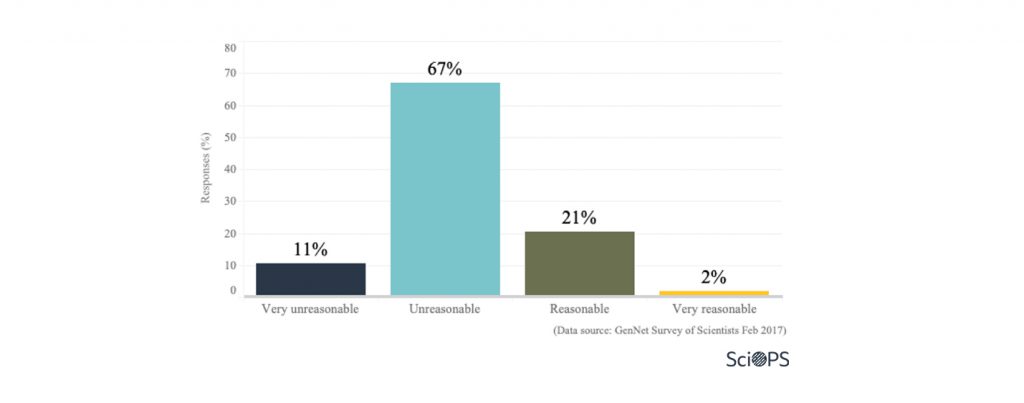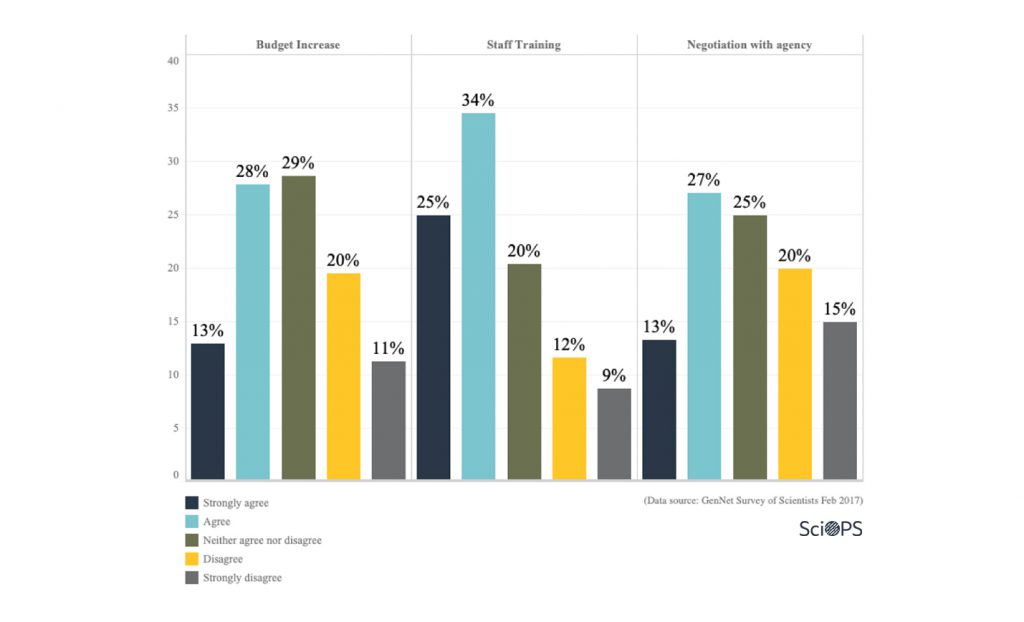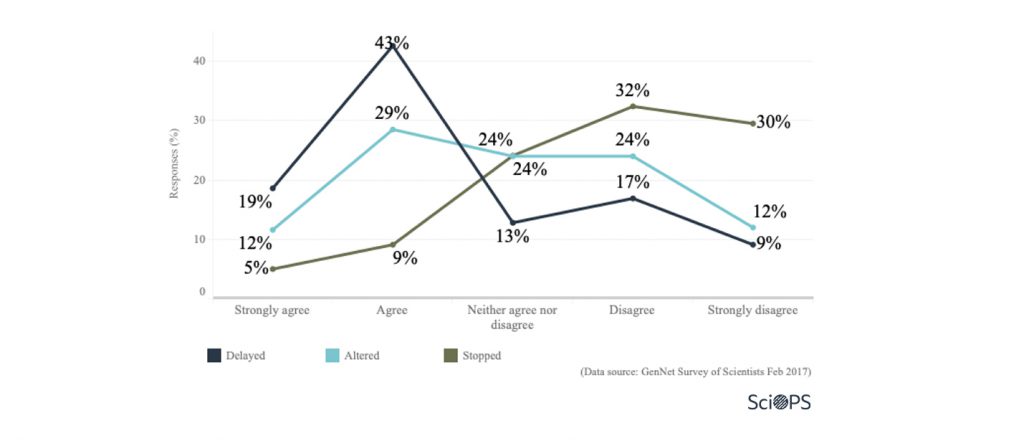Regulation of Science
Question

Finding
A majority of scientists report increased regulatory control over their research.
Question

Finding
Most scientists find regulatory controls to be unreasonable or very unreasonable.
Question

Finding
About 40% of all scientists using biological materials say that rules and regulations have triggered an increase in one or more proposed budgets.
About 60% of all scientists using biological materials agree or strongly agree that rules and regulations have required additional staff training.
About 40% of all scientists using biological materials say that rules and regulations have required negotiations with a regulatory agency.
Question

Finding
About 60% say that rules and regulations on biological materials have delayed their research.
About 40% say that rules and regulations on biological materials have altered their research.
About 14% say that rules and regulations on biological materials have stopped their research.
Survey Description
This research, Contested resources for science: How rules and regulations affect research collaboration and science production, is funded by the National Science Foundation, Directorate for Social, Behavioral & Economic Sciences (Award # 1462967). The project seeks to address a fundamental question: how do institutional controls over material and data resource inputs to research affect scientific collaboration structures, resource flows, and research outcomes? The survey collected data on individual background, perceptions of regulations, material and data sharing behavior and expectations, productivity, professional activities, and network data. The population of the survey includes tenured and tenure-track academic scientists from three subfields (marine biology, entomology, and ecology) within the population of American universities classified as “Very High” and “High” research activity according to the 2010 Basic Carnegie Classification.
The survey was implemented in early 2017 online using Sawtooth Software®, posted as a webpage and completed by participants online. Individuals were invited to the survey via email with a series of personalized email follow-ups, and one mailed reminder. The survey resulted in 1,295 usable responses with a response rate of 43.3% (APPOR 4). Responses are predominantly from male respondents (69%), which is only slightly lower than the gender distribution in the population. The distribution of rank is nearly proportionate to the population (23% assistant professor, 26% associate professor, and 51% full professor). Similarly, the distribution of field also reflects the sampling frame, with 54% of respondents working in ecology, 25% working in entomology and 22% working in marine biology.
